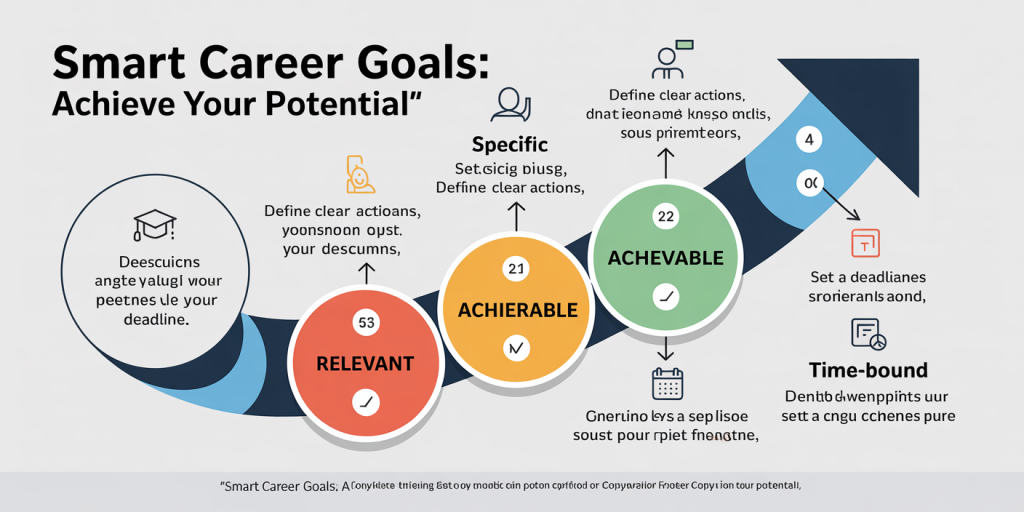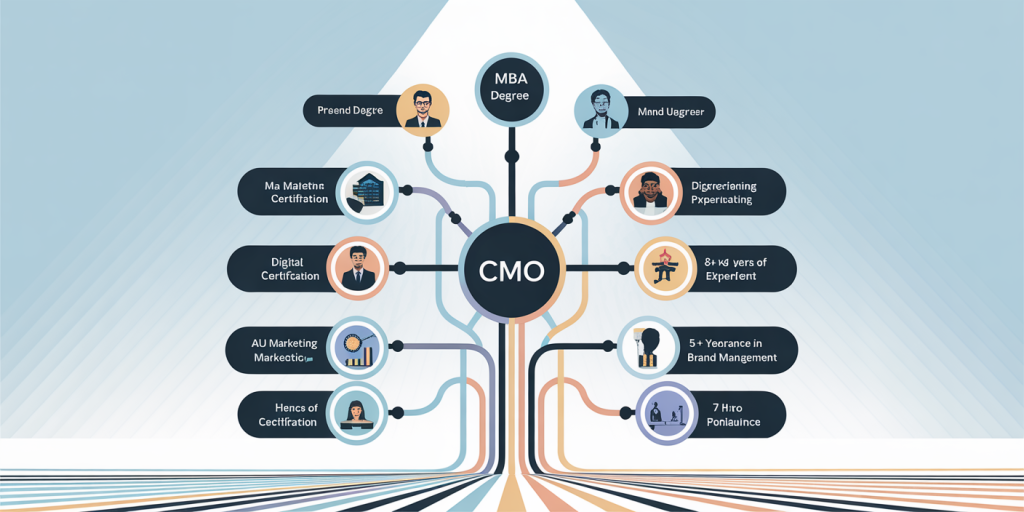Setting career goals is a foundational step toward professional success and personal fulfillment. However, many people struggle to create goals that are not only inspiring but achievable. According to a study by Dr. Gail Matthews, a psychology professor at the Dominican University in California, individuals who write down their goals are 42% more likely to achieve them compared to those who do not. Despite this, a significant portion of professionals either fail to set concrete goals or set objectives that remain unattainable, leading to frustration and stagnation. Understanding how to set effective career goals that align with your skills, values, and market trends can transform your career trajectory.
This article explores proven strategies to establish career goals that are realistic, motivating, and measurable. We will examine research-backed techniques, provide practical examples, and analyze comparative methods to ensure you can craft a roadmap tailored to your professional aspirations. Whether you are entering the workforce, aiming for a promotion, or considering a career pivot, this comprehensive guide will help you design career goals you’ll genuinely achieve.
Understanding the Importance of SMART Career Goals
Career goals without structure often become vague wishes that fade over time. The SMART criteria—Specific, Measurable, Achievable, Relevant, Time-bound—provide a reliable framework to ensure goals have clarity and direction. This approach has been widely adopted in both individual and organizational goal-setting practices, bolstered by empirical studies showing enhanced productivity and job satisfaction.

A specific goal, like “Increase coding skills,” lacks clarity compared to “Complete an advanced Python programming course by December 2024.” Measurability introduces checkpoints, enabling progress tracking and adjustments, which is critical to maintaining momentum. For example, Google employees use Objectives and Key Results (OKRs), which emphasize measurable goals, leading to heightened accountability and innovation. According to a 2020 Gallup report, employees with clearly defined goals demonstrate 29% higher productivity.
Achievability checks for realism: goals that are too ambitious risk burnout, while too easy goals may discourage engagement. A relevant goal ties into your broader career vision—increasing your leadership skills is pertinent if you aim to become a manager but less so if you plan to specialize as an individual contributor. Time-bound goals compel urgency and prevent procrastination, making deadlines a cornerstone of success.
| SMART Criteria | Definition | Example | Benefit |
|---|---|---|---|
| Specific | Clear and precise | Complete certification in data analytics | Focus and clarity |
| Measurable | Quantifiable outcomes | Finish 5 modules within 3 months | Progress tracking |
| Achievable | Realistic and attainable | Dedicate 4 hours weekly to study | Motivation and feasibility |
| Relevant | Aligns with career objectives | Data analytics certification for data role | Purpose and alignment |
| Time-bound | Set deadline for completion | Certification by Q4 2024 | Urgency and commitment |
By using SMART goals, professionals align their efforts with measurable standards, reducing ambiguity and fostering a proactive career mindset.
Visualizing Your Career Path Through Backward Planning
Backward planning, also known as backward design, is a goal-setting methodology where you start from your ultimate career destination and work backwards to identify the steps required to reach that point. This contrasts with forward planning, which begins from the current situation and moves linearly without an end vision, often leading to scattered efforts.
For example, if your dream is to become Chief Marketing Officer (CMO) at a Fortune 500 company, backward planning compels you to research the qualifications, skills, experiences, and milestones current CMOs possess. Maybe they typically have 10+ years of marketing management experience, an MBA, and a track record of successful product launches. With this end goal in mind, you can set interim objectives like earning an MBA within the next 3 years or leading a significant marketing campaign within 2 years.

Practical illustration: Sarah, a mid-level marketing strategist, desired a CMO role but felt stuck. Employing backward planning, she mapped out that to get there within 7 years, she needed to enhance her leadership competencies, gain international experience, and build a robust professional network. She then created year-by-year goals addressing these areas, converting an abstract ambition into actionable steps.
Data from the Project Management Institute (PMI) reveals that projects with clearly defined end goals using backward planning increase the likelihood of on-time and on-budget completion by 37%. Applying this logic to career development indicates that professionals who backward plan tend to reach their objectives more efficiently.
Leveraging Accountability Partners and Mentorship
Setting career goals is one thing, but executing them consistently requires motivation and external support. Accountability partners and mentors can play a decisive role in keeping you on track. Research in behavioral psychology indicates that public commitments and social accountability significantly enhance goal adherence.
An accountability partner is someone with whom you regularly discuss your goals, progress, and challenges. This can be a peer, colleague, or coach. For instance, two software developers might agree to complete a certification every quarter, sharing weekly updates and providing encouragement. This mutual accountability creates social pressure to perform, which increases the likelihood of success.
Mentors, often more experienced professionals, provide guidance, industry insights, and feedback that refine your career goals. Consider the story of Satya Nadella, CEO of Microsoft, who credits mentorship as a crucial factor in his career progression. Mentors help identify concrete benchmarks that you might overlook and can open doors to opportunities aligned with your objectives.

Consider the comparative impact of accountability drivers:
| Support System | Role | Example | Impact on Goal Achievement |
|---|---|---|---|
| Accountability Partner | Peer-to-peer check-ins | Weekly progress meetings | Enhances discipline and motivation |
| Mentor | Experienced advisor | Quarterly career development sessions | Provides strategic guidance and network |
Surveys by the International Coaching Federation show that 70% of individuals who have coaches or mentors report improved goal clarity and performance. Thus, integrating accountability and mentorship into your goal-setting process substantially increases your probability of reaching your career aspirations.
Embracing Flexibility and Regular Reassessment
Career landscapes are dynamic, influenced by technological advances, economic shifts, and personal priorities. Sticking rigidly to outdated goals can lead to missed opportunities or burnout. Incorporating flexibility and scheduled reassessments into your goal-setting framework ensures your career plan remains relevant and motivating.
For example, during the COVID-19 pandemic, many professionals had to pivot their goals due to changing industry demands. A financial analyst who originally aimed for a traditional investment role may have shifted focus toward fintech or data analysis, responding to emerging market trends.
Scheduling quarterly or biannual reviews of your goals allows you to evaluate progress, obstacles, and evolving interests. This reflective practice, akin to what Agile methodology promotes in project management, encourages adapting your goals to current realities.
A practical approach involves creating a career journal or dashboard where you log achievements and reassess priorities. Revising your goals is not a sign of failure but of strategic recalibration. High performers in companies like Amazon have quarterly performance and goal reviews, fostering continuous alignment with personal and organizational objectives.
Using Data and Market Research to Align Goals
Setting career goals guided by data and labor market trends increases the chances of long-term success. According to the U.S. Bureau of Labor Statistics (BLS), occupations in healthcare, technology, and renewable energy are projected to grow by over 10% between 2022 and 2032, indicating where future opportunities will thrive.
Conducting in-depth research into industry demands, salary ranges, required certifications, and growth prospects informs more strategic and achievable career goals. For example, if you are deciding between becoming a traditional software developer and specializing in artificial intelligence (AI), job market data indicates AI roles will experience a growth rate of 15% in the coming decade, with higher median salaries.
Below is a comparison of projected growth for selected tech roles:
| Career Focus | Projected Growth (2022-2032) | Median Salary (2023) | Required Credentials |
|---|---|---|---|
| Software Developer | 10% | $110,000 | Bachelor’s in Computer Science |
| AI Specialist | 15% | $140,000 | Master’s/PhD and AI Certifications |
| Cybersecurity Analyst | 12% | $105,000 | Security Certifications (CISSP) |
Aligning your career goals with such data helps you choose paths that maximize both job security and personal interest. Moreover, it prevents pursuing goals that may become obsolete or saturated.
Future Perspectives on Career Goal Setting
The future of career goal setting is increasingly intertwined with technology and evolving workforce patterns. Artificial Intelligence tools such as personalized career planners, skill-mapping applications, and predictive labor market analytics are becoming integral to guiding professionals in goal establishment. For instance, platforms like LinkedIn now offer career insights and suggested learning paths based on real-time data drawn from millions of profiles.
Additionally, as remote and flexible work become norms, career goals will expand beyond traditional corporate hierarchies to include gig economy success, entrepreneurial ventures, and portfolio careers. This diversification necessitates more fluid and iterative goal-setting strategies, emphasizing continuous learning and adaptability.
Finally, the rise of soft skills and emotional intelligence in workplace success predicts that future career goals will increasingly integrate personal development dimensions alongside technical competencies. According to a 2023 World Economic Forum report, skills such as creativity, critical thinking, and interpersonal communication will constitute 50% of all workplace competencies by 2025, shaping how goals are formulated.
Professionals equipped with dynamic, data-driven, and flexible goal-setting approaches will be better positioned to thrive in this evolving landscape.

Deixe um comentário